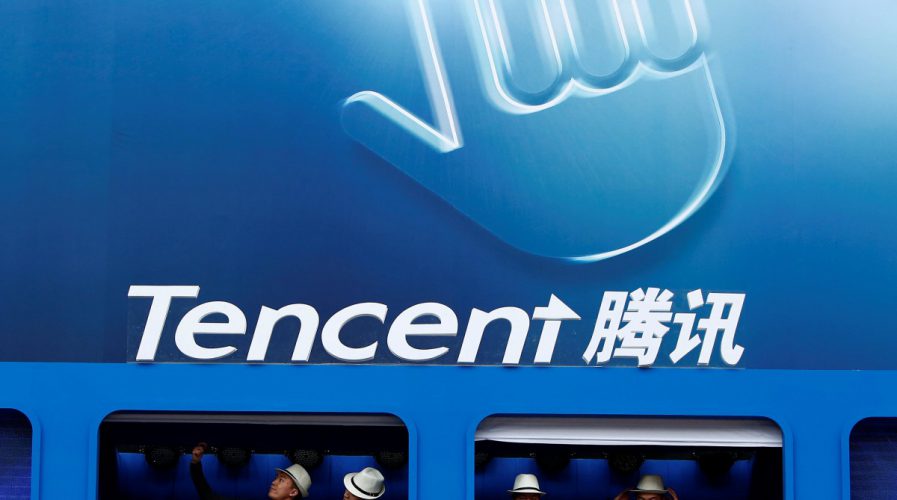
Shenzhen-based Tencent is also the largest video game publisher in the world by revenue, with a market capitalization topping US$525 billion. Source: Reuters
Tencent usurps Wells Fargo’s crown as 10th most valuable company globally
CHINESE companies rarely have half-lives beyond the borders of their native countries, but to be sure, there are some exceptions to the rule, such as technology giant, Tencent.
The company is one of China’s technology triad and news has just come out the company has overtaken Wells Fargo as the tenth most valuable public company in the world.
Wells Fargo beats Tencent when it comes to age by nearly 150 years, but the upstart Chinese firm clearly disproves with age comes experience. It represents China’s first entry into the exclusive club that includes other powerhouses such as Apple, Amazon, Alphabet, JPMorgan, and Berkshire Hathaway.
The company’s stock has climbed more than 20 percent in 2017, including an impressive 1.6 percent in just the last day. That combined with 2016’s 43 percent rise in value pushed the company over the last hurdle to usurp Wells Fargo’s spot on the list.
Tencent’s rising star bodes well for other Asian companies who have aspirations of claiming status as one of the most valuable countries in the world, especially considering Tencent’s exclusively Chinese ownership and management. It is best known for its social network, WeChat, which is the most popular microblogging site in the country, boasting about 1.1 billion users in China alone.

Other than WeChat, the company benefits from revenues gained from some gaming companies it has acquired and has recently acquired overseas companies such as Supercell and Riot Games. The real driver of the company’s large profits is their mobile payment system, WePay, which allows the users of their social media app to process transactions wirelessly.
The payment system surpassed the 600 million user mark in December 2016, driving up investor interest and the potential profits of the payment platform. It also largely explains the Midas touch that has blessed Tencent’s share price. The company’s March earnings reported its mobile payments user base was processing 600 million transactions daily.
In sheer numbers, Tencent’s WePay has long passed Alipay and Paypal as the largest online payment platform in the world, but has also established itself as a leading force in China’s burgeoning payments market. Tencent pulled in more than US$1.3 billion in payments revenue, according to estimates by JPMorgan. The continual rise of China’s fintech fortunes will likely lead to Tencent’s stock continue to rise, as well as the number of stores that will adopt it into their systems.
SEE ALSO: Tencent snatches up 5 pc stake in carmaker Tesla, cements position in China
Currently, many retailers in Beijing and Shanghai have the ability to process payments with WeChat and Alipay, and in some cases, it’s easier to pay with these platforms than with cash. JP Morgan estimates Tencent and Alibaba will collectively collect as much as US$40 billion in revenue by 2020.
Tencent’s rise also took place as a result of the hundreds of millions of venture capital it sunk into various tech services startups, such as group buying, food delivery and house cleaning. There is skepticism in some parties concerned Tencent cannot rely on its dominance in the Chinese market forever, especially if they are looking to stay.
The company has struggled to achieve a global footprint, unlike its company on the list – plans to expand WeChat globally two years ago just never caught on since it had to compete with services such as WhatsApp and Viber.
However, Tencent can now bask in its glory, knowing now that China is on the map, more will come.
READ MORE
- The criticality of endpoint management in cybersecurity and operations
- Ethical AI: The renewed importance of safeguarding data and customer privacy in Generative AI applications
- How Japan balances AI-driven opportunities with cybersecurity needs
- Deploying SASE: Benchmarking your approach
- Insurance everywhere all at once: the digital transformation of the APAC insurance industry
